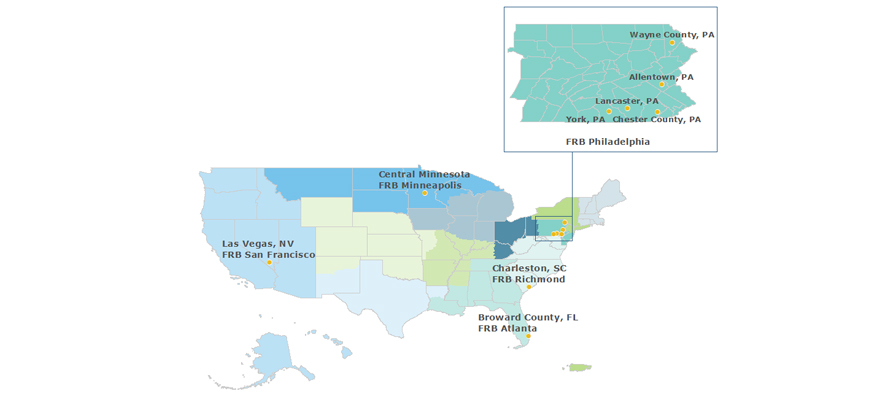The 2021 ROC Cohort program focuses on equitable small business recovery after the COVID-19 pandemic. Over 10 months, nine cohorts spanning communities across the U.S. will engage in equity-focused training and peer-to-peer learning and receive personalized support in developing their local small business recovery plans. This year’s partners include the Federal Reserve Banks of Atlanta, Minneapolis, Richmond, and San Francisco.
Meet this year's participating communities
The 2021 cohort includes communities representing various corners of the country.

Questions about this year’s program? Contact FRBP.ROC.Local@phil.frb.org.
